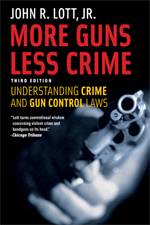ladyliberal
Progressive Princess
- Aug 5, 2011
- 1,253
- 291
- 48
Ok. Please cite.
/discussion. See above.
I do not know what you want me to cite, what you want me to see, or what "/discussion" means. If you were to use complete sentences I believe it would assist me greatly.

 I actually agree with the bolded part also. The right sure is connected with the idea of militias and the ability to even form one in the first place BUT that does not preclude it from being a personal right instead of a collective right. In other words, the right to form a militia is simply nonexistent if there is no right to bear arms. In that context, there is a connection to the militia in the second but that in no way limits the right to a militia. It is still a personal right.
I actually agree with the bolded part also. The right sure is connected with the idea of militias and the ability to even form one in the first place BUT that does not preclude it from being a personal right instead of a collective right. In other words, the right to form a militia is simply nonexistent if there is no right to bear arms. In that context, there is a connection to the militia in the second but that in no way limits the right to a militia. It is still a personal right.



